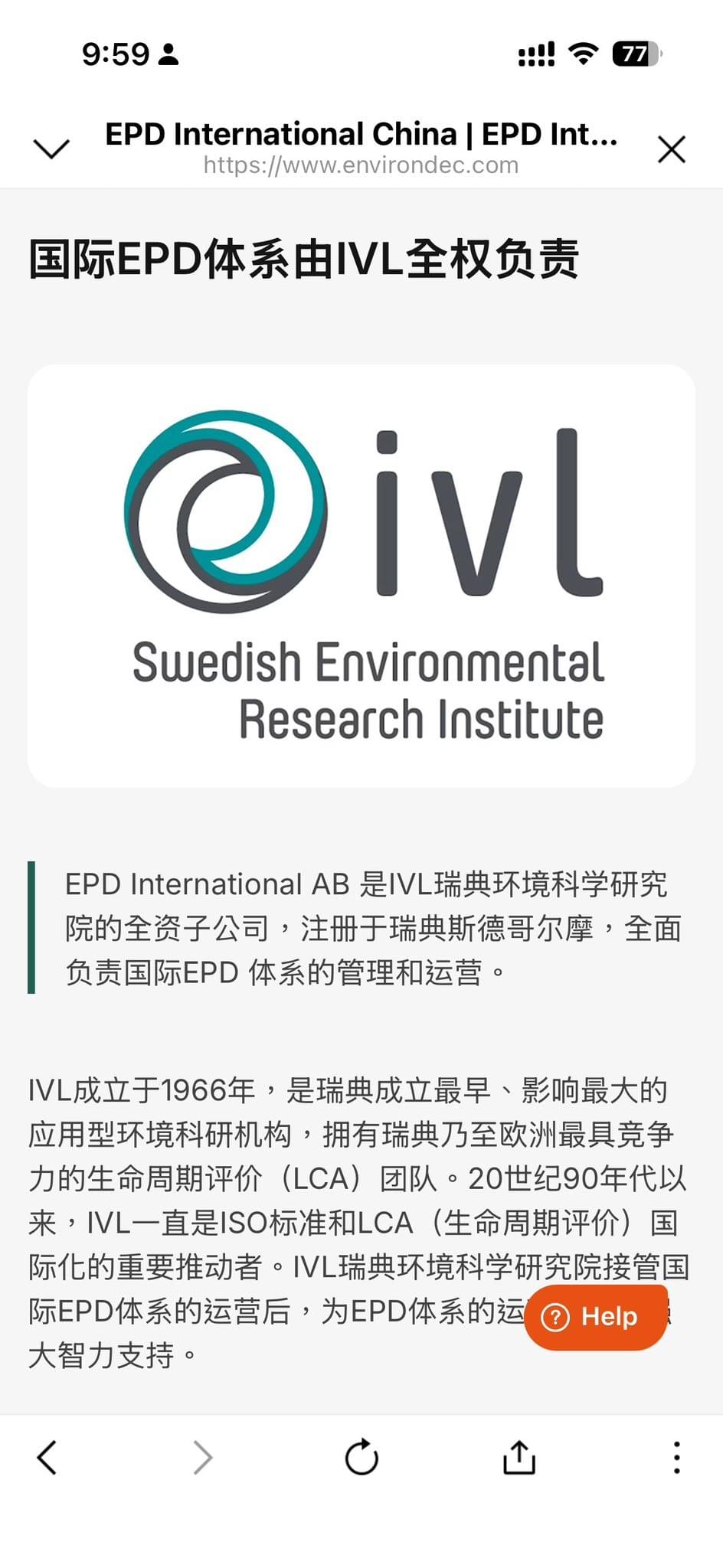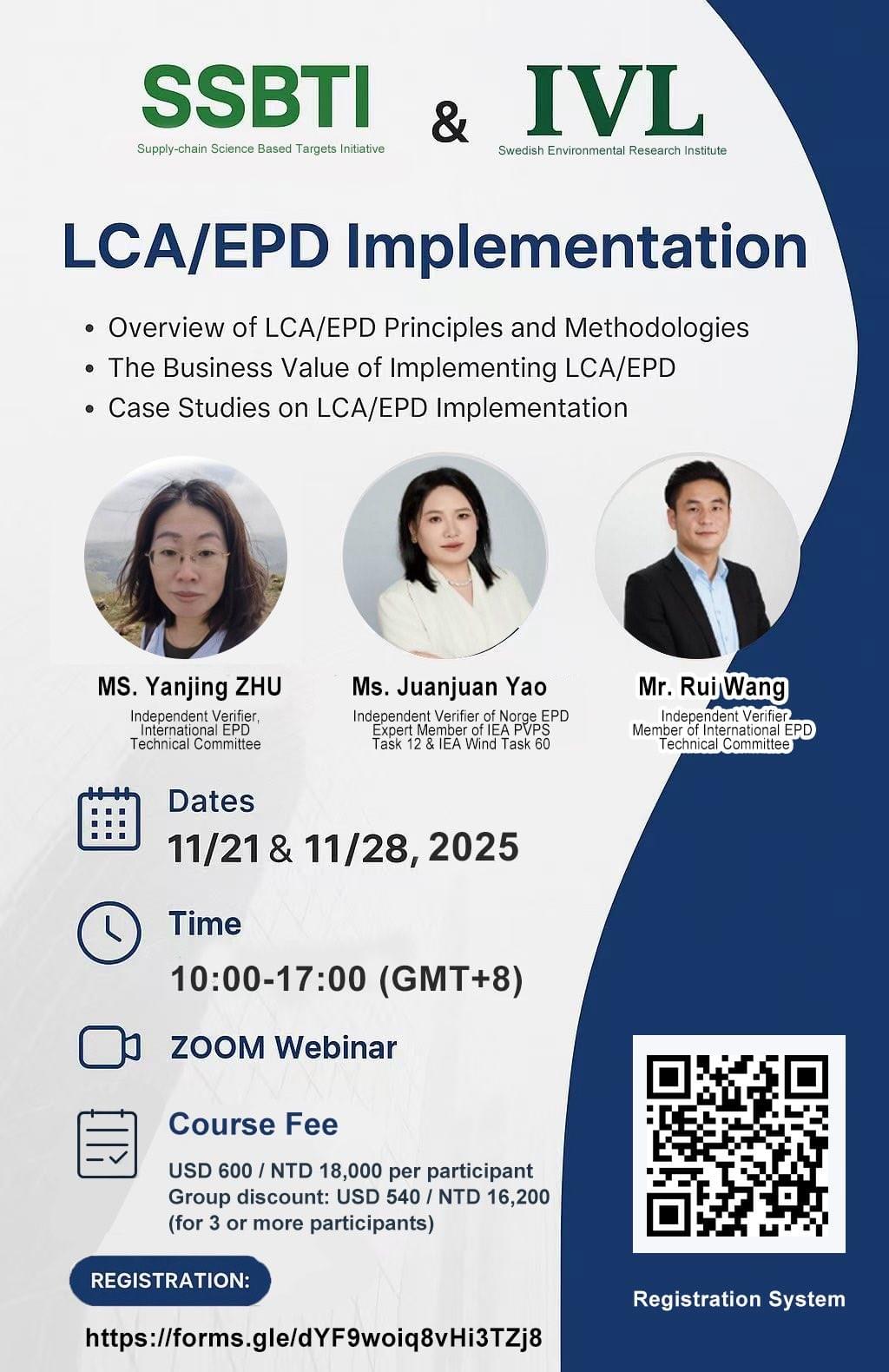COP30 in Belém, Brazil, is more than an annual climate conference.
It marks the beginning of a new phase in the global realignment of carbon rules, low-carbon materials, and supply chain transparency.
One of the most significant developments this year is ResponsibleSteel’s announcement of formal cooperation with the European LESS low-emission steel standard and Asian standardization bodies. This collaboration aims to develop globally interoperable carbon accounting and classification systems for steel — covering nearly 60% of global steel production .
This milestone sends a clear message:
The world is moving quickly toward unified, LCA-based carbon footprint standards.
Without scientific methods and verifiable LCA capability, participation in global supply chains will become increasingly difficult.
For Taiwan — a major export-oriented economy — this is both a warning and an opportunity.
⸻
Global Steel Decarbonization: From Fragmented Standards to Interoperability
The agreements announced at COP30 underline a critical transition:
from fragmented regional carbon standards to a converging interoperability framework that enables:
• Sliding-scale carbon intensity thresholds linked to scrap ratios
• LCA-based product carbon footprint (PCF) methodologies
• Science-based definitions of “low-emission steel”
• Conversion tools for cross-standard comparison and verification
This is not simply another standard —
it is the beginning of a globally connected carbon footprint system.
As the EU tightens CBAM, and multinational buyers shift toward product-level footprint requirements, LCA-based carbon transparency is becoming mandatory for international trade.
Taiwan must recognize that future competitiveness depends on scientific carbon measurement, verification, and digital traceability — not ESG reporting alone.
⸻
What This Means for Taiwan
1. Taiwan must strengthen its scientific foundation: LCA before ESG
Most Taiwanese companies still approach ESG through disclosure and reporting.
However, the global direction is clear:
Climate claims must be grounded in verifiable LCA-based data — not narrative.
Steel is only the beginning.
Electronics, textiles, chemicals, packaging, food, footwear — all sectors will face LCA requirements for exports.
2. Taiwan needs interoperable LCA/EPD databases — not isolated reports
SSBTi’s observations show a structural gap:
Taiwan companies say:
“We have carbon inventory.”
But buyers now ask:
“Is your product carbon footprint compatible with EU/US/ISO standards?”
“Can your data be internationally recognized?”
Without methodological alignment, interoperability becomes impossible.
Without interoperability, market access becomes uncertain.
3. Taiwan must develop local LCA/EPD capabilities instead of relying solely on foreign verification
International carbon regulations are rapidly shifting toward product-level rules.
To remain competitive, Taiwan must build:
• Local LCA methodological capacity
• Local EPD development and review capability
• Integration with global databases (ecoinvent, CLCD, ELCD, etc.)
• Carbon footprint–driven design, sourcing, and materials decisions
This is Taiwan’s missing industrial competency — and now the most urgent.
⸻
SSBTi’s Commitment: Advancing Scientific Decarbonization in Taiwan
As a nonprofit focused on supply chain climate action in Asia, SSBTi is committed to:
✔ Building LCA/EPD capability across industries
✔ Strengthening carbon database interoperability through the eFootprint platform
✔ Supporting suppliers in adopting Science-Based Targets (SBTs)
✔ Enabling industries to move from “carbon promises” to scientific carbon reductions
Taiwan cannot rely solely on foreign standards or external consultants.
We must establish our own scientifically rigorous, internationally recognized LCA competency.
⸻
Conclusion: COP30 Marks a Turning Point — Taiwan Must Act Now
The developments at COP30 highlight a critical shift:
the convergence of global low-carbon material standards around scientific, LCA-based measurement.
The era of generic ESG disclosure is ending.
The era of product-level carbon verification has begun.
In the next decade, competitiveness will depend on:
✔ Ability to calculate product carbon footprints
✔ Compatibility with global interoperability frameworks
✔ Mastery of scientific decarbonization methods
This is the most important message COP30 delivers to Taiwan.



